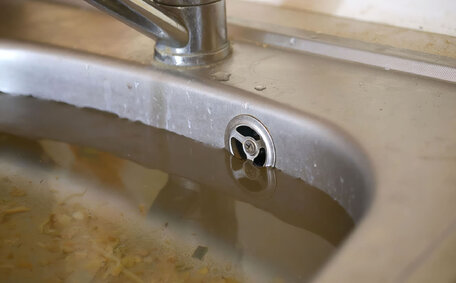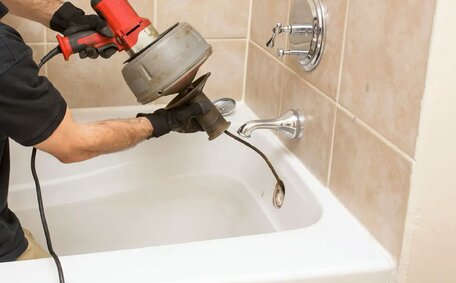Introduction to Gas Fitting Regulations in Australia
Securing the required permits and adhering to gas fitting regulations is crucial for gas safety and legal compliance in Australia. Every gas fitting task must conform to the Gas Standards Act 1972, the installations regulations 1999 and the AS/NZS 5601.1:2022 standard to guarantee safety. Baseline requirements for natural gas and LPG systems ensure safe usage, with additional state and territory-specific permits and approvals as needed.
The scope of gas fitting includes the installation, alteration, repair, or removal of gas pipes, appliances, containers, and equipment. Those planning to engage in gas-related work must obtain the appropriate permits and licences. Failing to do so risks violations, fines, disconnection from the gas network or having work decommissioned if found non-compliant.
Although specific regulations differ across regions, typical permit requirements include:
- Type b appliance permits for complex or high-risk gas systems
- Planning permits for gas infrastructure in new constructions or renovations
- Licenced and registered plumbers with the right gas fitting qualifications for a new home and renovations
Subsequent sections detail the state-specific requirements and procedures for obtaining the necessary gas fitting approvals. With gas infrastructure prone to leaks, explosions and other hazards if faulty, emphasising gas safety and legal compliance applies new protections for homeowners, workers and the wider community.
Key Requirements for Gas Installation Permits
There are several vital criteria to fulfil before acquiring permits for gas installation work in Australia:
- installing new gas systems in your property, which may need a planning permit when such projects are carried out
- Making significant upgrades or alterations, which do require planning in many cases, to existing gas systems
- Relocating or extending connected gas pipes, appliances or gas equipment in new dwellings or renovations in existing homes
- decommissioning old gas infrastructure that may require planning permit
Gas fitters must possess a valid work licence, and details on the requisite credentials for specific tasks are readily available. Gas fitters unable to present their licence and the required certification to work gas face penalties.
While permit types vary across states, you’ll need to consider common fees associated with gas fitting permissions:
- Type B Gas Appliance Permit – For complex or high-risk gas installations
- Planning Permit – For gas infrastructure in new constructions or renovations
- Certificate compliance – To certify finished work meets Australian Standards
Overlooking the need for a gasfitting permit can lead to critical risks. Hence emphasising safety and legal compliance remains paramount.
Faulty or non-compliant gas installations pose household risks and contribute to greenhouse emissions via leaks, explosions, or carbon monoxide release. If found, such systems may be decommissioned, with owners facing disconnection, legal action, and hefty fines.
Overview of Gas Fitting Licensing
For crucial installations, maintenance, or modifications, ensure you hire Class I licensed gas fitters. Gas systems, including hot water units, can leak, explode or pose dangers other than the obvious serious risks if handled improperly. Energy Safety Western Australia and the Victorian Building Authority govern licensing to safeguard the public and ensure the efficient provision of gas services.
All states and territories enforce rigorous licensing criteria for professional gas fitters. Certain regions acknowledge gas fitters who hold interstate or New Zealand registrations and have residential and commercial proficiency. Common licence classes include:
- Class G – Basic gasfitting work on most residential and commercial installations
- Restricted licences – Specialist work like lp gas systems or air conditioning
Licensing regulations require practitioners to possess the necessary qualifications and pass thorough compliance assessments. Upon successfully completing the prerequisite course, a gas fitter must provide their licence details to clients to conduct legal gas system work. Employing unlicensed technicians for gas work puts you at risk of non-compliant installations, invalidated insurance claims, and potential fines.
Emphasising competence and safety, licencing gives clients confidence in the work undertaken on their gas systems. All households and businesses benefit from the standards and accountability this structure provides.
State-by-State Permit and Licensing Requirements
Gas fitting permits and licensing requirements often differ subtly across Australian states and territories. Yet the fundamental principles of safety, competency, and compliance are nationally consistent.
New South Wales
In NSW, a valid gas work licence is required for all gasfitting activities, as dictated by NSW Fair Trading.
- Gas Work Authority – Mandatory for gasfitting activities
- Restricted Licences – Specialist work like LPG systems
A certificate must be lodged before any gas installation work commences, a mandatory step obtainable through the NSW Planning Portal’s MyInspections system.
Victoria
The Victorian Building Authority, guided by the Victorian Government, manages gasfitting licensing in Victoria. Gasfitters in Victoria must register with the VBA and fulfill specific requirements:
- Qualifications and experience
- Insurance
- Compliance certificates for all work
The VBA also oversees responsibilities around auditing, penalties and disciplinary action for non-compliant gasfitters.
Queensland
In Queensland, anyone conducting gas work must hold a valid licence issued by the Queensland Building and Construction Commission. Key requirements include:
- Photo ID licence cards
- Minimum 1 year on-site experience before applying
- Meeting technical qualifications and competency
Gasfitting work also requires permits like Form 4 – Notification of Plumbing, Drainage and On-Site Sewerage Work.
Obtaining a Gas Fitting Permit: Process and Documentation
Securing the correct gasfitting permit before commencing work is crucial for legality and safety. While specific requirements vary across Australia, the process typically involves:
- Determine the work type and requisite permits with local authorities
- Submit application forms accompanied by documents such as qualifications and liability insurance
- Awaiting approval as a permit holder for gas fitting
- Displaying permit onsite throughout project
- Arranging necessary inspections during and after completion
- Providing compliance certificates to regulators upon finishing
Typical fees include charges for Type B Gas Appliance permits and planning permits. Standard documentation required includes:
- Licenced gas fitter qualifications
- Public and product liability insurance
- Compliance certificates
- Safety management plans
- Gas system diagrams
Fees vary by council, but you will be charged only for what aligns with the work scope, equipment used, and inspection needs. Upholding legal compliance ensures household protection through accountable and safe gas fitting practices.
Complying with Gas Installation Standards
Adherence to the National Code of Practice for gas installations (AS/NZS 5601.1:2022) is a must for all gas fitting work in Australia. As the mandated uniform standard, it ensures safety and proper functionality by outlining requirements like:
- Materials and designs for pipes, appliances, ventilation and more
- Installation methods and clearances
- Inspection, testing, certification and compliance
- Decommissioning and sanitising old gas infrastructure
Other mines industry regulation and AS/NZS standards may supplement the main gas code with additional technical specifications as needed. However, AS/NZS 5601.1 forms the authoritative baseline.
Professionals exhibit compliance by submitting certificates, maintaining precise installation records, and undergoing inspections. This accountability ensures gas systems remain leak-free and safe for households over the long term.
Faulty gas infrastructure can result in severe hazards like gas leaks, explosions, and fires. Hence emphasising strict adherence to the national gas code protects residents, workers and the wider community.
Avoiding Compliance Issues and Ensuring Safety
Undertaking gas fitting without the right permits is highly risky. Work by unlicensed technicians or non-adherence to national standards can result in gas leaks, explosions, poisoning or fires. Homeowners should only engage certified gas fitters who visibly display their licence and permits onsite.
Thoroughly verify qualifications and ensure compliance certificates are issued to affirm that the work meets standards upon completion. Should there be any doubts, consulting the comprehensive fee list in your local council’s documentation ensures adherence to state regulations. Consider using registered plumbers like those at Hornsby Plumbing, as public liability insurance protects consumers if accidents eventuate from non-compliant work.
While mistakes occur rarely from experienced professionals, emphasising safety and compliance remains paramount with gas systems.
The hazards of flawed installations - from loss of life to voided insurance claims and prosecutions - are simply too severe. By working solely with properly accredited gas fitters and tradies, households and businesses remain protected while supporting trades accountable to Australian standards.
Contact Us for Gas Fitting Services
For all your consumer gas installations fitting needs in the Hornsby area, trust the licenced experts at Hornsby Plumbing. With over 15 years of experience, we handle any gas job—big or small—to the highest safety and quality standards, making us your preferred choice.
Our certified gas fitters are fully licensed and permitted to handle gas fitting tasks in residential, commercial, and industrial environments. We remain up-to-date with the latest regulations and codes of practise.
To arrange a consultation or book an appointment, contact Hornsby Plumbing today via phone on 1300 349 338 or email [email protected]. As trusted local plumbers, we would like to offer reliable, efficient service for:
- Connect gas lines and install new gas appliances
- Maintenance, repairs and fault finding
- The safe decommissioning of outdated gas infrastructure
With responsible, licenced technicians and full insurance guarantees, you can count on us to handle your next gas project safely, legally and to your complete satisfaction.






